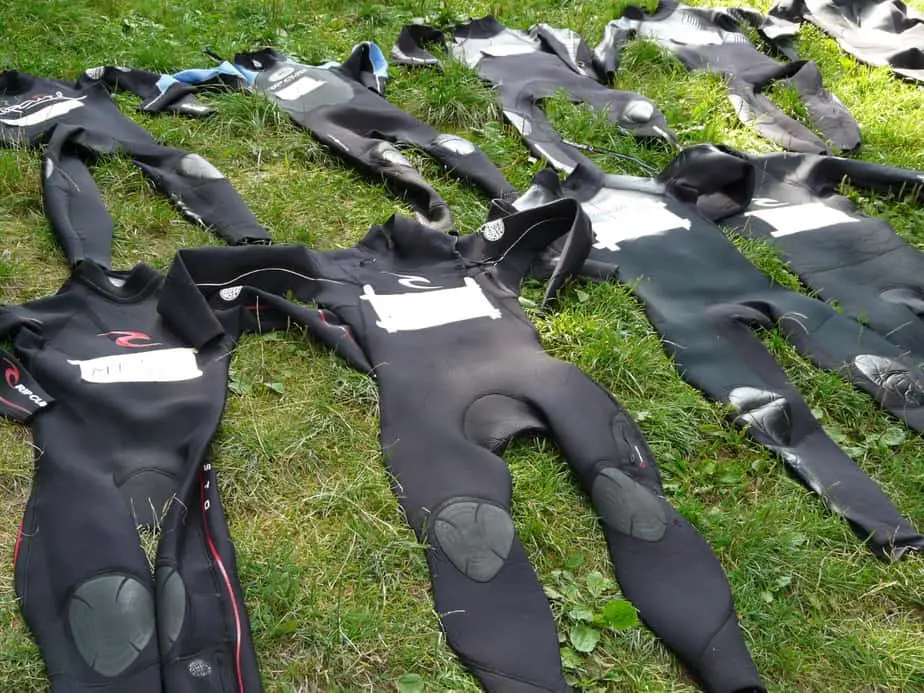Wetsuits are a crucial piece of equipment for scuba divers because they provide the necessary insulation to be able to withstand the cold waters for long periods of time. A wetsuit is probably one of the first pieces of scuba gear you’ll buy. However, as important as they are, you don’t technically need to have a wetsuit of your own. Renting is always an option, especially if you travel abroad to dive. So the question is, should you buy a wetsuit of your own or continue renting?
The right answer differs from person to person, however there are many advantages to buying your own wetsuit over renting. For starters, a wetsuit is small enough that it can be rolled up and placed neatly in your luggage or bag when traveling by plane, unlike a scuba tank. Having your own wetsuit also means that it will fit you comfortably each time. You’ll also have peace of mind knowing that it’s a lot cleaner since you know what you have done with it and you are responsible for maintaining it. That’s not even all the benefits having your own wetsuit provides.
As you can see, a very strong argument can be made for buying your own wetsuit. However, we would be remiss to recommend this option for everybody; there are also some scenarios where renting would make a lot of sense. In this article, we’ll go over the pros and cons of buying a wetsuit vs. renting, however we are leaning more towards buying your own wetsuit for very good reasons.
Does it make financial sense?

Before we even get to the myriad reasons why you might want to buy or rent a wetsuit, for many people, the deciding factor is simply: which option will save me the most money?
Buying a wetsuit has a higher initial cost, whereas over a long period of time, renting will cost you more money.
The next question to consider, then, is how often you will be diving? For those who dive infrequently, renting makes more sense financially because it could literally take them years before they pay the equivalent in rental fees as the full cost of a wetsuit.
If this infrequent diver had bought a wetsuit, after years of storage and very little usage, they would likely want to replace it anyways. Neoprene rubber, which wetsuits are made of, have a finite lifespan whether you use them or not, especially if they are not stored properly (e.g. left exposed to the sun, causing the colors to fade and the rubber to become brittle). If, by the time they replaced the wetsuit anyways, they had not gotten their money’s worth in terms of usage, then they should have just rented in the first place.
How often do you need to dive before buying a wetsuit actually saves you money in the long run? It depends on how much the rental fees are at the local dive shops where you are diving at.
For example, it can cost you anywhere from $10-30 USD to rent a wetsuit for a day. The cost of a low to mid-range full wetsuit can be $100-400, depending on how much you want to spend. Thus, renting a wetsuit approximately 10 times already costs as much as a decent wetsuit. Plus, a wetsuit of your own can last for years if you properly rinse, dry, and store them.
Thus, you do not even need to be an avid diver to financially justify buying a wetsuit over renting. Unless you dive so infrequently that it’ll take you years before you rack up $200 in total rental costs, you should probably buy a wetsuit.
The (potential) hidden cost of renting

Renting costs more long-term, however it also might be costly in the short-term.
You see, dive shops that provide rental dive gear understand that many customers don’t take good care of the rental equipment because they feel no ownership over it. Thus, dive shops ask for a hefty deposit to discourage abuse.
If you damage the rental gear, you lose that deposit. The deposit can be literally as much as the full cost of the wetsuit. So basically, losing the deposit is kind of like you buying a wetsuit anyways; might as well just buy your own wetsuit in that case.
Now, if you’re a careful diver, you’ll most likely never lose the deposit. However, the risk is always there, and it can make you feel quite fearful. Instead of just focusing on the dive and enjoying it, now you have this paranoia that a sharp coral might suddenly slash the wetsuit, and it’s bye-bye deposit.
If you bought your own wetsuit in the first place, of course the same risk of damaging it doesn’t change. However, at least you could have taken advantage of all the benefits of owning (such as a proper fit, better hygiene, etc.) and not bleeding money by renting this whole time.
Plus, wetsuits can be repaired, and that cost is going to be much cheaper than the fees you would have paid by renting.
Wetsuit pricing
Below is a rough guide on what you can expect to buy within a certain budget. This can further help you decide if it’s financially worth it for you to rent or buy, and how quickly you can break even in terms of saving on rental costs if you decide to buy.
| Cost | Suit mm | Suit Type |
| $15-$100 | None – 0.5mm | Bathing suit/rash guard |
| $100-$300 | 1mm – 2mm | Wetsuit shorty, shirt/shorts |
| $100-$400 | 1/2mm – 3mm | Wetsuit long sleeve/leg, Farmer John |
| $100-$660 | 2/3mm – 4mm | Full wet/semi-dry/suit/gloves/boots |
| $100-$400 | 3/4mm – 5mm | Full wet/semi-dry/suit/gloves/boots |
| $100-$800 | 5/7 mm – 7mm | Full wet/semi-dry/suit/gloves/boots |
| $400- $5000 | Dry suit | Full dry suit/gloves/hood |
Buying a used wetsuit to save money
You can have significant savings on wetsuits if you buy used due to how quickly they depreciate in value. This can be a huge benefit if you manage to find a like-new wetsuit because you can get potentially a 50-60% savings off the retail price.
However, it’s not all rainbows and sunshine. The same issues that you have with renting in terms of getting the right fit, dealing with questionable wetsuit hygiene, or getting a low quality wetsuit is all present when buying a used wetsuit.
First, let’s discuss where you can buy second-hand dive equipment from. You can buy it from a dive shop, but by far the most popular methods are to search on eBay, Craigslist, Facebook Marketplace, garage sales, and flea markets for a private sale.
Second, you need to consider the wetsuit condition. When was it first purchased? How many years has it been in use for, under what conditions, and how was it maintained?
If you notice that the wetsuit appears to be very thin, that means that it has been compressed and re-compressed many times by the water pressure when diving, meaning it has seen its fair share of use. It may not even properly keep you insulated.
Wetsuits that have been used primarily in pools will be bleached by bleach/chlorine, giving it a faded look and reduced UV protection.
Look for any creases or folds from improperly hanging it to dry (i.e. not using a wetsuit hanger) or folding it such that it has a permanent crease. Also keep an eye out for loose stitching, worn tape/glue, or any other signs of wear and tear on the wetsuit.
You can use any defect as a bargaining tool to try to negotiate a better price from the seller. However, if there are too many defects, you might as well just move on because the wetsuit might not offer you any protection against the cold or UV rays.
It’s up to you whether you want to buy a new wetsuit or a used one. If you can find a wetsuit that is like-new, then it’s definitely worth the price. However, anything longer than a couple of years old, then it becomes more of a gamble.
Ensure a snug and comfortable fit
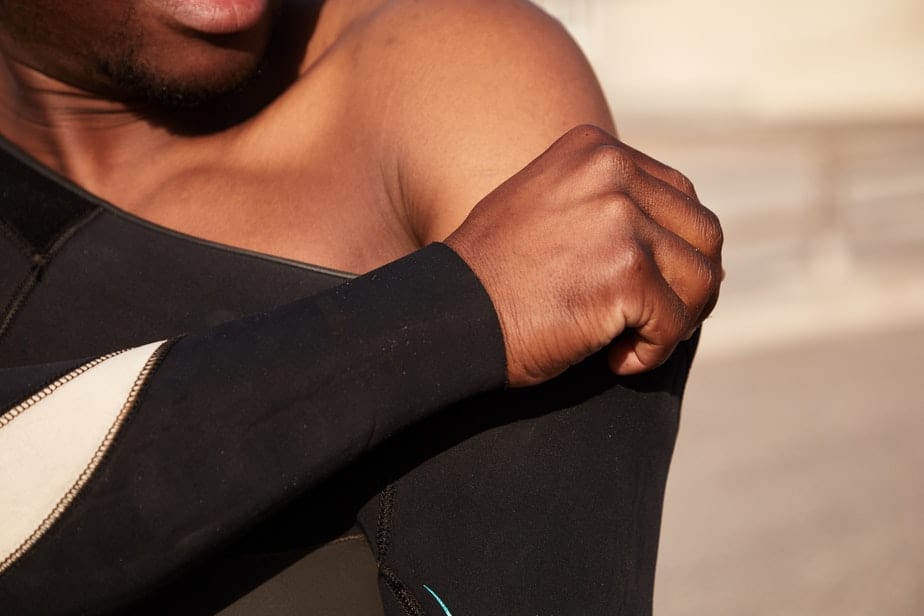
A wetsuit should fit you tight so that it can properly insulate you from the cold water. It should not be so tight that it restricts your blood flow, but it should not be too loose that the cold water can flush out the warm water inside. An ill-fitting wetsuit is worse than useless; it’s actively detrimental because it increases drag underwater.
As you can see, a well-fitting wetsuit is crucial. That is why you need to spend some time making sure you have a snug and comfortable fit. Finding a wetsuit that fits is an annoying process whether you’re buying or renting a wetsuit, but here’s the key difference: When you buy, you only need to do it one time. When you rent, you have to go through this process every single time.
Unless your weight fluctuates wildly over the months and years, buying a wetsuit to ensure a snug fit will save you time and avoid frustration with getting the right fit. And if a wetsuit doesn’t fit you anymore, perhaps you can use it as motivation to lose some weight before your next dive trip. Worse case scenario, you can pay to have it altered, kind of like how you can get your clothes tailored.
Get the exact specs you want
When you’re renting, you don’t exactly have the largest selection available to you. You might only have a choice between a couple of brands, if you get a choice at all, and the only thing you can really decide is if you want one size or another. Rental companies don’t have the luxury of giving you lots of options because it doesn’t make financial sense for them to do so.
Maybe you want a wetsuit from a certain brand, that looks a certain way, that has a certain style, etc. When you buy your own wetsuit, your options are unlimited (up to a certain price, of course), and there will definitely be something that suits your needs. If you already have an idea of what brand you prefer, that already narrows things down, and you will be able to get the exact specs you want.
Cleanliness
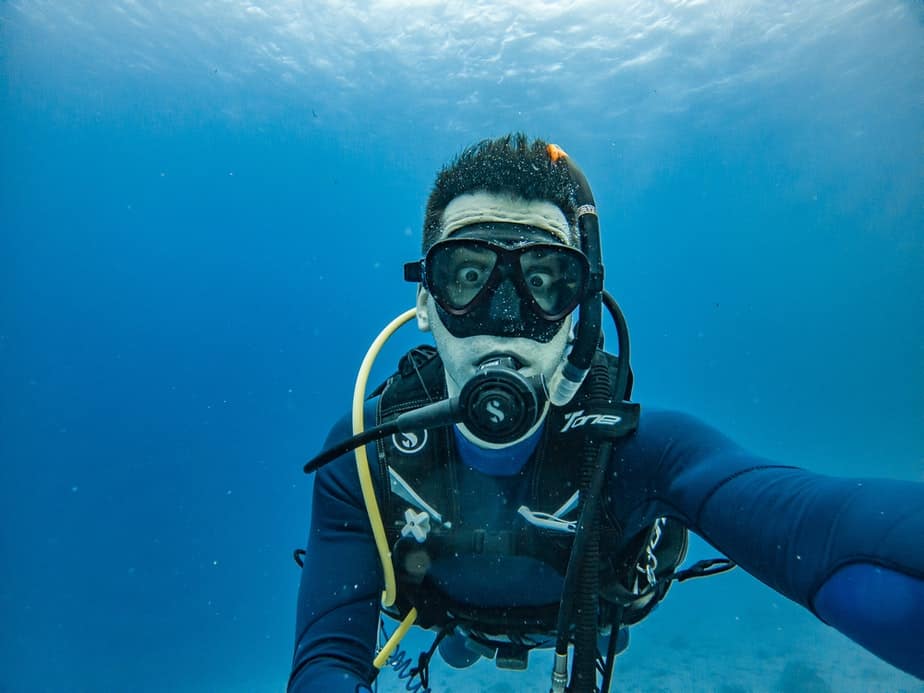
One of the gross things about renting dive gear is that you’re sharing equipment that other people have put in their mouth, drooled or vomited on (in the case of regulators), sweat in, bled and even peed in. In terms of overall hygiene, this is the one argument where buying a wetsuit is clearly the superior option compared to renting.
With your own wetsuit, at least you know that any mess you make is yours. Whether that mess is actually cleaner than other peoples’ messes or not is debatable, but surely you’re comfortable with your own sweat, oils, and urine? Because whether you’re buying or renting, you’re going to be sweating and peeing in that wetsuit. The difference is that rental wetsuits have been worn by others who have also done the same. Are you okay with that?
Do you trust your own ability to sanitize and maintain your wetsuit better than a dive shop employee’s ability to do so? At least with your own, you can take your time and do a thorough job. The dive shop employee has to bulk wash dozens in a tub, and they may not be as thorough as you. Failure to clean a wetsuit properly will allow the bacteria in sweat, urine, and oils to linger and spread.
To be fair, if you do not feel that you can do a good job cleaning and maintaining a wetsuit, or if you feel too lazy to wash and dry your own wetsuit, then renting is a better option for you. If you’re willing to put in a little bit of work, the effort will pay off in the form of financial savings and cleanliness.
Get the highest quality wetsuit available
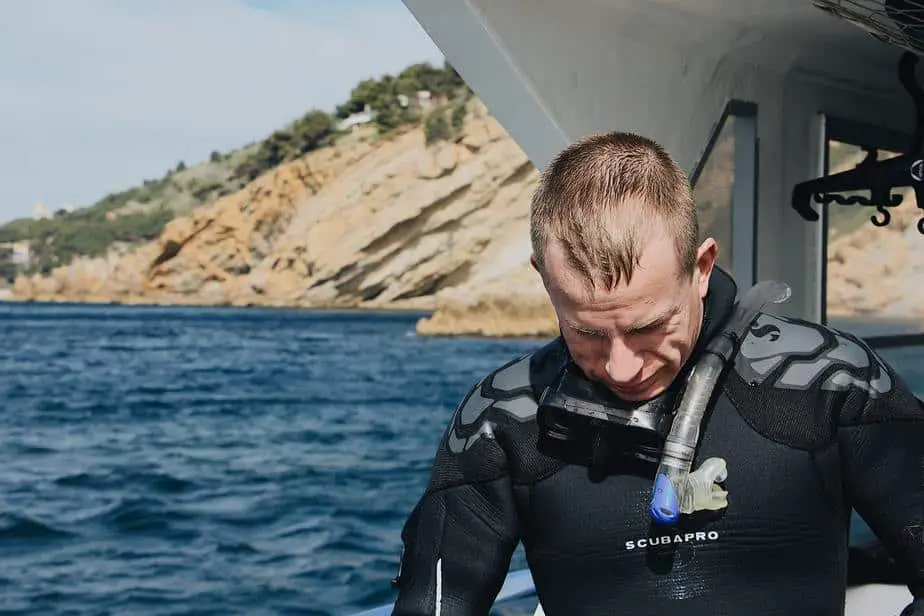
Not only do you get a choice of whatever wetsuit you want when shopping, but you also get to choose between budget vs. high-end options. In other words, you get to have a level of quality that is much higher than what a rental shop will provide. Naturally, budget is a limiting factor, but if you dive often enough then this may be a worthy investment.
With rental suits, you are getting the bottom of the barrel wetsuits. Dive shops are not looking for high-end, luxury, 5-star wetsuits. They know that people will abuse their equipment, so they would rather order a huge number of lower quality wetsuits so that it’s much easier to replace a damaged one.
That said, wetsuits are not the most sophisticated pieces of dive gear, so a standard wetsuit will suffice even when you’re renting. However, if you want a wetsuit that is comfortable, warm, flexible, stylish, the whole nine yards, then you will have to pay a premium.
Convenience and peace of mind
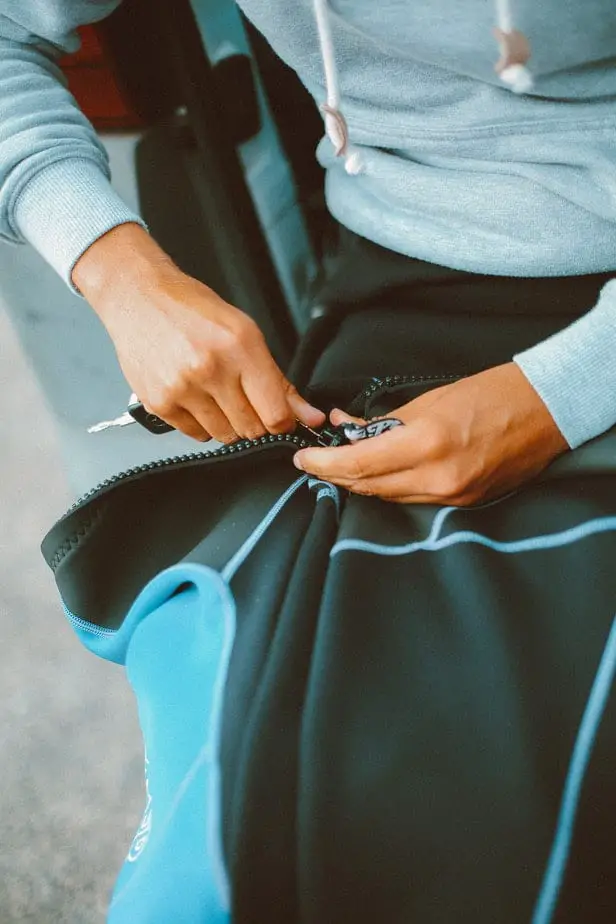
When you are not restricted to the selection of wetsuits a dive shop offers, you will have much more freedom and peace of mind than ever before. It is simply much more convenient.
For example, if you rent your equipment, then you have to work around the dive shop’s schedule and location. If you want to plan a shore dive, or if you and your buddies spontaneously decide you want to go for a dive, it’s much harder if you don’t own your wetsuit.
Those who own their own wetsuit can get the call or text from their buddies, drive all the way to the dive site and already be underwater literally within an hour. The convenience of always having it available and not having to worry about getting the right fit cannot be understated.
With your own wetsuit, you will have peace of mind knowing that you don’t have to deal with any of the hassles associated with renting. No worrying about damaging it and paying a deposit, no more worrying about getting a snug or comfortable fit, no more worrying about cleanliness or the quality of the wetsuit. When you buy a wetsuit of your own, you can get the same experience each time, and that can be very liberating.
And if, for some reason, you end up regretting your purchase, you can sell it second hand. There’s a thriving market for used scuba equipment, and you can at least recoup some of the costs if your wetsuit is still in good condition.
If you bought your wetsuit online, you might be able to return it for a refund. Depending on the store’s return policy, you may or may not have to pay for return shipping. Most stores have a policy where if the wetsuit touches water, they no longer accept a return, so make sure to test it while it’s still dry so that option to return is still available.
When is renting better?
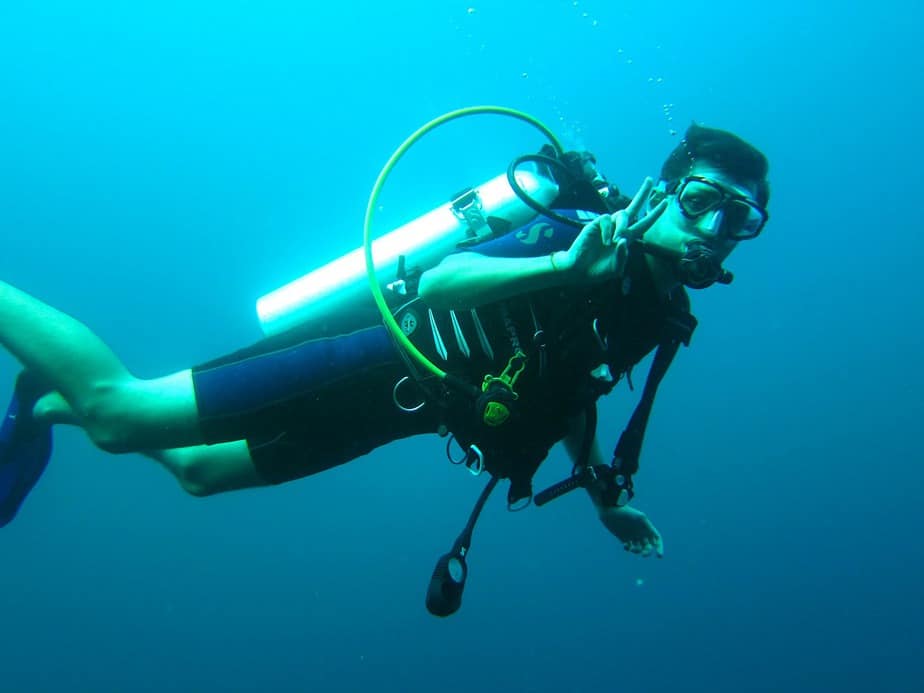
We are clearly in favor of buying, but renting a wetsuit can also be a viable option depending on the circumstances.
For example, if the wetsuit rental is extremely cheap where you are diving at, below the $20-30/day figure we stated earlier, then renting becomes a much more attractive option. It’s a great short-term solution if you’re not sure how much you will be diving in the near future.
Next, as we mentioned, buying your own wetsuit means you can give it a more thorough cleaning, but what if you don’t want anything to do with wetsuit maintenance? If you’d rather just let the dive shop deal with it, then renting is better.
Furthermore, if you’re traveling by plane, then there is also an issue of transporting your dive gear. Again, rental wetsuits can simply be rented and then returned and you don’t have to worry about lugging it around while on vacation. If you don’t want to lug around a bunch of scuba gear, then renting is convenient in that regard.
As you can see, it’s not always such a clear-cut case when one should buy or rent because there are pros and cons to each. However, we believe that if you’re even a casual scuba diver, then buying provides you more benefits than downsides, so we think you should take the plunge.

